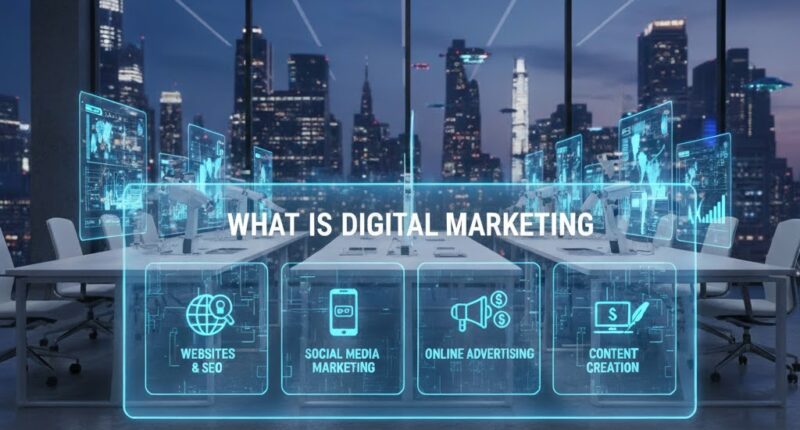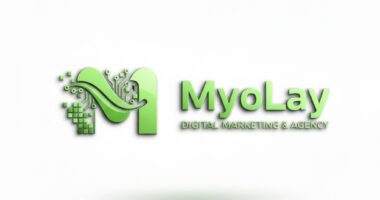Introduction to Digital Marketing
In today’s fast-paced digital world, traditional marketing methods alone are no longer enough to reach modern consumers. Digital marketing refers to all online strategies and channels used to promote products, services, or brands through the internet. It involves connecting with audiences where they spend most of their time — on search engines, social media, email, and websites. Digital marketing allows businesses to engage customers in real time, measure performance, and optimize campaigns for better results.
Importance of Digital Marketing in Today’s World
Digital marketing has transformed the way businesses operate. Unlike traditional advertising such as print or TV, digital marketing offers measurable results, precise targeting, and cost-effective campaigns. It helps both small and large businesses increase their online visibility and reach a global audience.
Some key benefits include:
-
Cost efficiency: Digital marketing is more affordable than traditional marketing methods.
-
Measurable performance: Tools like Google Analytics help track conversions and user behavior.
-
Targeted audience: Businesses can focus on specific demographics, interests, and locations.
-
Enhanced engagement: Social media and email marketing build stronger relationships with customers.
Types of Digital Marketing
1. Search Engine Optimization (SEO)
SEO is the process of improving a website’s visibility in search engine results pages (SERPs). It focuses on optimizing website content, speed, and structure to attract organic traffic. The higher a website ranks on Google, the more potential customers it can attract.
2. Pay-Per-Click Advertising (PPC)
PPC advertising allows businesses to pay only when users click their ads. Platforms like Google Ads and Bing Ads offer highly targeted campaigns that appear above organic search results, driving instant traffic and leads.
3. Social Media Marketing
Social media marketing leverages platforms such as Facebook, Instagram, LinkedIn, and TikTok to promote brands and engage with audiences. Consistent posting, storytelling, and influencer collaborations can help businesses grow their brand presence.
4. Content Marketing
Content marketing focuses on creating valuable, relevant, and consistent content to attract and retain customers. Blogs, videos, podcasts, and infographics are powerful tools for educating audiences and improving SEO rankings.
5. Email Marketing
Email marketing remains one of the most effective digital marketing strategies. Personalized emails help nurture leads, promote offers, and maintain customer loyalty.
The Future of Digital Marketing
With rapid technological advancements, digital marketing continues to evolve. Artificial Intelligence (AI), automation, and data-driven analytics are shaping the future of online marketing. Businesses that adapt to new technologies and focus on user experience will stay ahead of the competition.
Conclusion
In summary, digital marketing is essential for any business aiming to succeed in the modern online marketplace. It provides measurable, cost-effective, and impactful ways to reach and engage customers. By integrating SEO, social media, content, and email marketing strategies, companies can strengthen their brand and achieve long-term growth.










1 comment
https://shorturl.fm/AhaOP